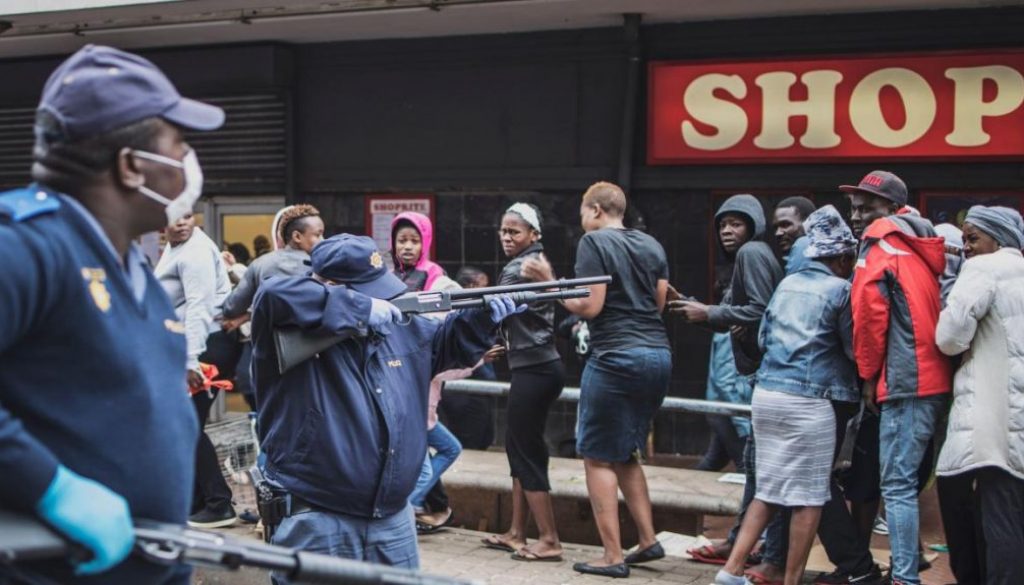South Africa: Food protests and violent enforcement of quarantine measures
Since March 26, South Africa has been under a strict lockdown in response to the COVID-19 pandemic. The government declared a “state of disaster” that has been enforced by both police and military forces, who have been accused of using excessive force against anyone they find violating quarantine measures, including the homeless. The South African lockdown is one of the strictest in the world and requires all residents to remain home with few exceptions, bans the sale of cigarettes and alcohol, and criminalizes disinformation about government measures addressing COVID-19.
As a result of these measures, large parts of the population have been left without work and depend on government food parcel distribution. By mid-April, insufficient or lack of food distribution and allegations that government officials misappropriated food parcels led to protests. On April 14, a group of 100 residents in Talfesig, Cape Town burned tires and blocked streets demanding better food distribution. Police escalated tensions by responding to protesters with rubber bullets and tear gas. Over the following days, protests spread alongside grocery store looting and clashes with police in Cape Town, Johannesburg, and other cities. The broadness of the lock down measures have been legally challenged since their beginning. Initial regulations were repealed and replaced on April 29. The Legal Resources Center (LRC), an INCLO member, has been among those defending the rights of informal traders, while others have sought to challenge the validity of the cigarette ban. On June 2, a Pretoria high court called the lockdown measures unconstitutional and gave the government two weeks to “review, amend and republish” them.
Pic: Getty Images/ The Times
(Labelled for non-commercial re-use.)

